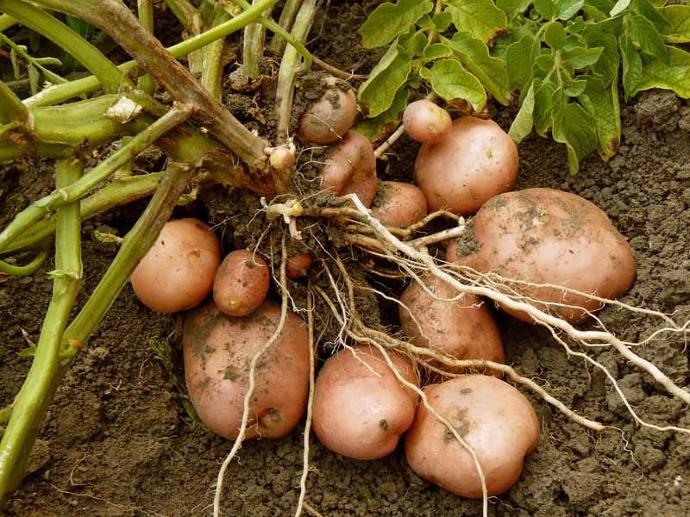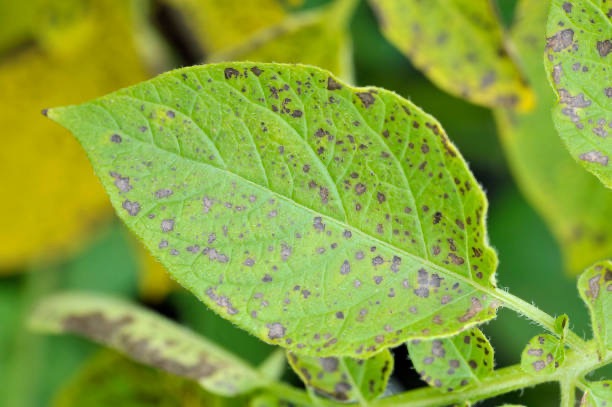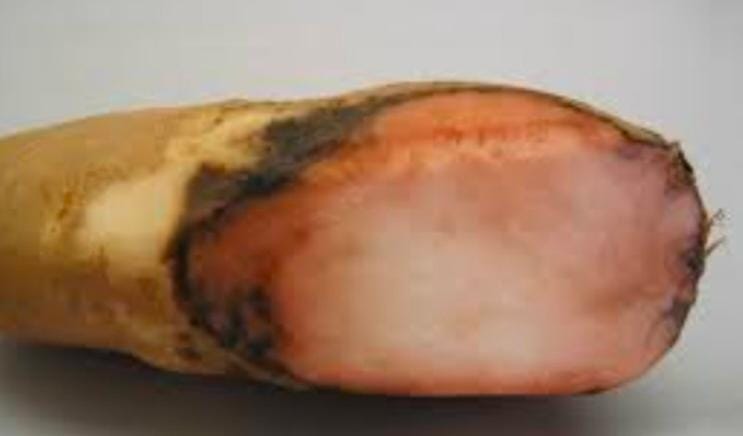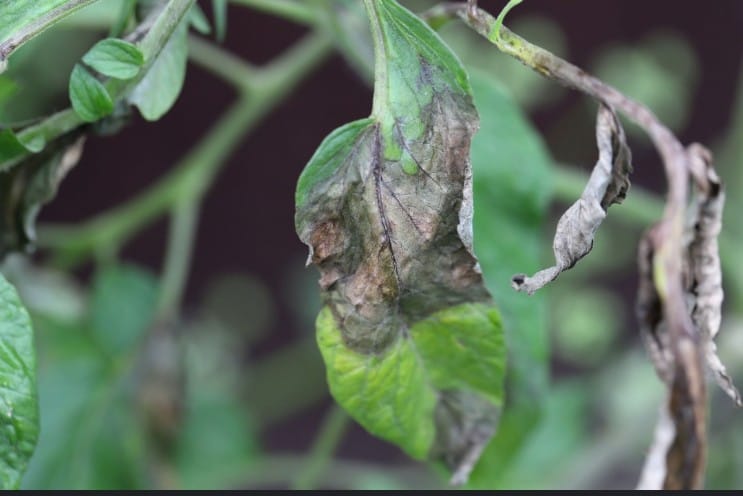Potato Plant
Potatoes are perennials, 18-24 inches tall, and frost-sensitive. They prefer well-drained, sandy-loam soil in full sun. Keep the soil moist. Potatoes are edible but not medicinal.

Habit
Perennial
Height
0.3 to 0.5 m
Growth
Moderate
Soil
Well-drained, Loamy
Shade
Full Sun
Moisture
Moist
Edible
Yes
Medicinal
No
Origin
South America
Climatic Condition
Temperate, Subtropical
Temperature (°)
15°C to 20°C
Humidity (%)
60% to 80%
Potting media
50% Loam, 40% Sand, 10% Organic Matter
Fertilizers
Organic Fertilizer
Watering
Regular watering
Plant Weight
1 to 3 kg
Flowering Time
Spring to Summer
Soil Ph level
5.5 to 6.5
Water Ph level
6.0 to 7.0
Soil EC
0.5 to 1.0 mS/cm
Yield Per Plant
3 - 25 potatoes per plant
NPK ratio
10:10:10
life Span
1 to 2 years
Health Benefits
High in Carbohydrates, Medicinal
Suggested Grow Media or Potting Mix ?
50% loam, 25% compost, 25% sand
Suggested Fertigation/Fertilizers
Fertilize every 6 weeks with a balanced fertilizer.
Common Diseases and Remedies
Bacterial wilt , brown rot , potato blight
affects on potato tubers like abrasion of skin
allow the tubers to dry after careful harvesting and check regularly in storage
fungicidal sprays are effective in controlling early blight and other leaf spots.
HEALTH BENEFITS
· Rich in carbohydrates, providing energy.
· Contains fiber, aiding digestion.
· Good source of vitamin C and potassium.
· Helps regulate blood pressure.
Antioxidants may reduce inflammation.
What Is A Potato Plant?
Potatoes are starchy root vegetables native to the Americas and consumed as a staple food in many parts of the world. Potatoes are the tubers of the plant Solanum tuberosum, a perennial herb in the Solanaceae family. Wild potatoes are found from the southern United States to southern Chile.

What Are The Different types of potatoes?
1.Red potato:-
Thin skin and sweet taste.
2. Russet Potatoes:-
Also known as Idaho, Baker, or Burbank potatoes, these are the most commonly grown potato varieties in the United States. It is characterized by its brownish-gray rough skin and light, fluffy flesh.
3. White Potato: -
Has a light skin and pale flesh similar to a reddish-brown potato, but the skin is much thinner. Peeling is often omitted, as the skin becomes very soft when cooked.
4.Yellow Potato:-
It has pale golden skin and yellow flesh. Blue/Purple Potato May be healthier than regular potatoes.

How do you care for Potatoes?
1.Location :-
Ensure consistent moisture, especially after flowering. Potatoes need 1 to 2 inches of water per week.
2.Sunshine:-
Potatoes require at least 6 hours of sunlight per day to grow healthily.
3.Soil :-
Potatoes grow best in well-drained, sandy, nutrient-rich, loose soils. The ideal soil pH is between 6 and 6.5, but potatoes can tolerate soils with a pH as low as 5. If your soil is more acidic than 5.3 to 6.0, you can mix in wood ash to raise the pH and increase the pH value.
4.Hydration:-
Potatoes are approximately 80% water and 20% solids. Rich in vitamin C, an antioxidant. In ancient times, potatoes were a life-saving food source because vitamin C protects against scurvy.

5.Nourishment:-
found in potatoes is potassium, an electrolyte that supports heart, muscle, and nervous system function.
6.Issues:-
Lack of quality seed tubers, high seed costs, bulky potato seed transportation, virus invasion of seed tubers.
What are the benefits of potato plants?
Strengthening the immune system Supporting healthy digestion Promoting Healthy Eating Brain Function Supporting Weight Management Reducing Inflammation Supporting Muscle Function.

FAQ's About Growing Potatoes
1. Do potatoes contain protein?
Yes, potatoes contain surprisingly high quality protein.
2. Why are potatoes important?
Rich in vitamin C.
3. What do you call a potato stem?
Potatoes grow in underground stems called runners.
4. Who discovered the potato?
Inca Indians
5. What is a positive potato?
A small crocheted potato only 7-8 cm tall. plant loves the heat of the tropical climates with more humidity than dryness. One may grow it in large ceramic pots to accommodate the beauty that it is!



